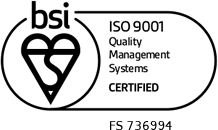As reviewed in a recent InnovateUK report – ‘A roadmap for quantum technologies in the UK’ (2015) – quantum technologies are a high growth and strategic direction for the UK. Quantum technologies includes all aspects of the physics, chemistry, engineering and materials science acting to support that sector.
Quantum theory arose in the early 20th century to explain how light and matter behave at a fundamental level and is one of the most successful theories ever devised. Quantum theory introduced two effects that cannot be explained by conventional ‘classical’ physics. These are known as superposition (one particle being in two places at the same time) and entanglement (which Einstein viewed as spooky action at a distance). One way on which entanglement is useful to us, is in providing new ways of achieving unprecedented precision in measurements of all sorts.
Quantum applications already exist and have done for some time in fact. The atomic clock for example, provides a fundamental quantum view of time and the way in which (old fashioned) hard disk drives operate is based on quantum effects most often observed at the nanoscale.
The future for quantum technologies and the materials that enable those applications, is an exciting one, encompassing applications such as quantum inertial sensors, gravimeters, telecommunications, enhanced imaging systems, computers, devices for space, medical and security sectors and much more.



